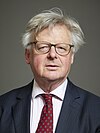Supreme Court of Hverland
The Supreme Court of Hverland (Hverlandic: Hæstaréttur hverlands) is the pinnacle of the nation's judiciary and serves as the ultimate arbiter of justice in the country. Functioning on the principles of Nordic law, the court plays an essential role in preserving civil liberties and ensuring the rule of law in Hverland.
Structure
Composed of seven justices, who are appointed by the President of Hverland, the Supreme Court stands as the highest judicial authority in the nation. Appointments are generally made on the recommendation of the independent Judicial Appointments Board (Dómnefndatilnefningarnefnd), emphasizing the court's separation from the legislative and executive branches of government.
| Justice | Birth | Appointed by | |
|---|---|---|---|

|
Bertil Kolbensundr (President) |
January 27, 1938 | Grim Fritjofsundr (SD) |

|
Alfhild Tostidotra (Associate) |
February 1, 1964 | Hjorleif Agnarsundr (SD) |

|
Olve Henningssundr (Associate) |
May 9, 1951 | Lilje Ingmundsdotra (OT) |

|
Sverre Rikardsundr (Associate) |
August 19, 1968 | Lilje Ingmundsdotra (OT) |

|
Brita Bernstein Finnsdotra (Associate) |
April 20, 1960 Tel Aviv, Israel |
Lilje Ingmundsdotra (OT) |

|
Disa Magnusdotra (Associate) |
December 12, 1956 |
Runa Asmundsdotra (CP) |

|
Gorm Larsundr (Associate) |
April 1, 1961 | Jenthar Yngvisundr (LI) |
Functioning
The primary duty of the Supreme Court is to hear and adjudicate appeals from lower courts, offering the final word on both factual and legal matters. The court operates on the principles of due process, equality before the law, and the right to a fair trial. Decisions are rendered according to existing legal precedent and statutory law, all of which are guided by the overarching values encapsulated in Hverland's constitution.
Artificial intelligence
In alignment with Hverland's status as a technologically advanced nation, the Supreme Court has also integrated Artificial Intelligence (AI) into its operations. While AI assists in administrative tasks, legal research, and data analysis, rigorous regulations are in place to ensure that the use of technology does not compromise judicial independence, impartiality, or transparency.
